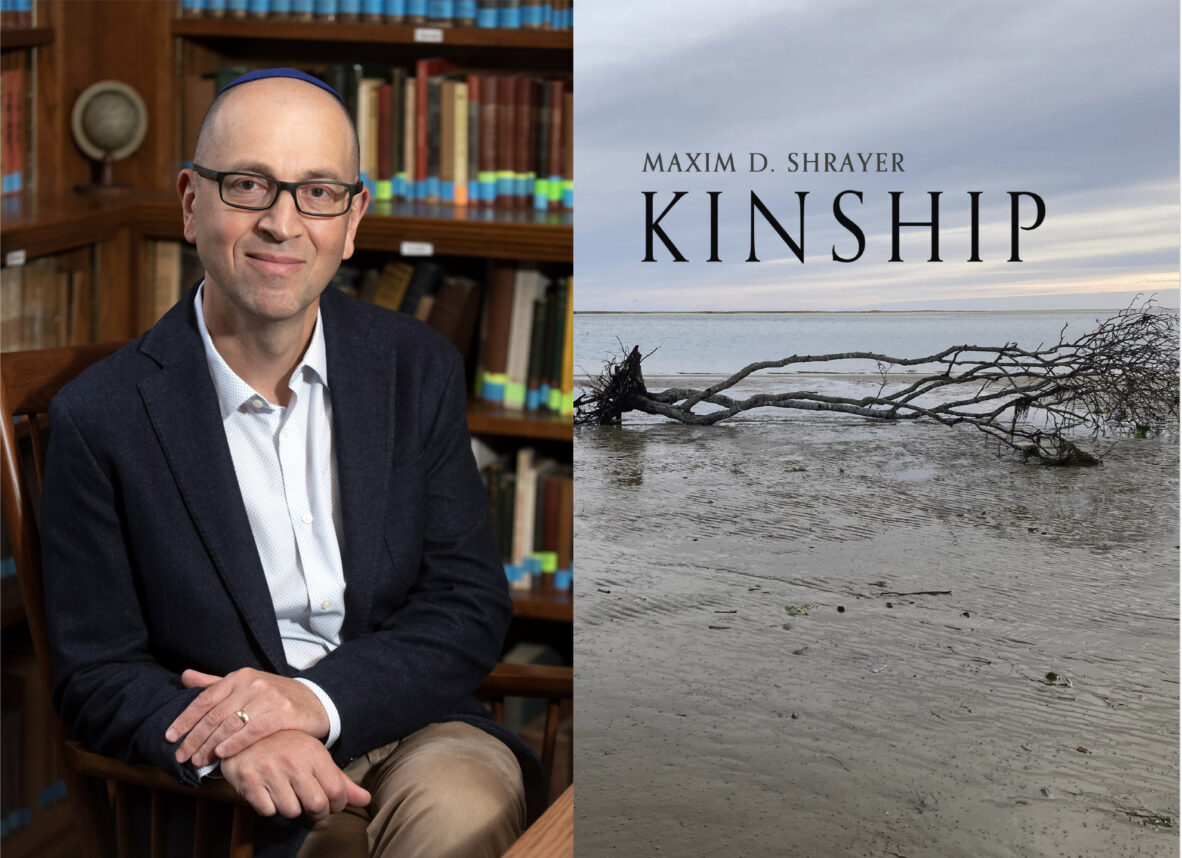Under a banner of balloons arranged as a rainbow flag, Juval Porat, 32, stands on the bimah at Beth Chayim Chadashim (BCC) on a warm June evening. In front of a packed sanctuary, Rabbi Lisa Edwards presents him for the first time as the Reform synagogue’s new cantor.
Over the past few years, Porat has become something of an international celebrity in the world of Judaism. He is the first cantor trained in Germany since the Holocaust, and many Jews view his accomplishment as a symbol of the future of the German Jewish community.
But rather than embrace his new role, Porat responds to questions about the attention as if it weren’t happening at all.
“I never made a decision to become the first German-trained cantor,” he said in an interview following the installation. “It just happened to me. Why should it be controversial?”
Born in Israel, Porat spent his childhood shuttling between his country of origin and Berlin, Germany. His parents instilled in him a strong Jewish identity and sent him to yeshiva. After graduating, he went to school to become an architect.
But an early passion for music led him to pursue singing in his free time, and it was then that he discovered his true path: Jewish music.
“The impulse to become a professional cantor didn’t come out of nowhere,” he said. “I started working as a cantorial soloist, and seven years later, I asked myself, ‘Why shouldn’t I do this professionally?’ ”
At that time, there were no professional cantorial training programs in Germany. Rather than travel out of the country, Porat approached the leadership at Abraham Geiger College, a rabbinic seminary in Potsdam, and helped to develop — and ultimately graduate from — a cantorial studies program.
Shortly after his graduation from Abraham Geiger, Porat met Bruce Maxwell, BCC’s president, through a friend in Berlin. The two hit it off, and Maxwell suggested that Porat try for the position left open after BCC’s longtime cantor, Fran Chalin, retired in 2007.
At Maxwell’s request, Porat sent MP3s containing his music to the synagogue’s leadership and arranged for an interview via Skype. At 2 p.m. Los Angeles time — midnight in Berlin — he logged in and auditioned for the BCC staff and board members.
“We heard Juval’s voice, and it felt comfortable to us,” Edwards said. “It was a combination of gentleness and power; we wanted to hear more immediately.”
Porat then traveled to Los Angeles to help lead High Holy Days services in 2008. He did as well in person as he had online, and by July 2009 he was on a plane to Los Angeles to begin his new job.
To some, Porat is such a perfect fit for the synagogue, his meeting with Maxwell seems almost fated.
“Some people think someone else had a hand in it,” said Edwards. Now, following his installation, Porat is beginning to settle into American life.
Meanwhile, those around him are realizing that his accomplishment represents not just a new page in German Judaism, but in American Judaism as well.
“[Juval] can help us dissolve the prejudices we do have about Germany, as someone who was very comfortable living as a Jew in Berlin — which is so surprising,” Edwards said.
But Porat also brings with him a certain level of honesty — despite having felt comfortable growing up as a Jew in Berlin, he can still recall a time when the events of World War II were at the forefront of his mind.
“I had my Holocaust phase, where I dealt very intensely with the entire theme,” he said. “I remember very consciously closing the door to it, but it’s not locked — it’s open on every Holocaust Memorial Day.”
That Porat should find himself at BCC is also notable — the Pico-Robertson district synagogue has been known for its groundbreaking role as one of the first LGBT synagogues to be accepted into the Reform movement.
And with that history, Edwards is perhaps better able to understand why Porat downplays his sudden role as an international Jewish leader.
“I think when you’re a trailblazer, you don’t realize it,” she said. “Like GLBT rights. We didn’t set out to be pioneers; we didn’t set out to be activists. We wanted to be something we weren’t allowed to be. I think it was the same for him.”
In the meantime, Porat is primarily concerned with adjusting to his new surroundings. His first few months in Los Angeles, he said, were difficult and led to a few months of significant depression. “I was really confronted with my dark side,” he said. “It was a tough time.”
But now, as he adjusts to everything — from the American manner of speaking and dressing to the necessity of having a car — he’s beginning to feel more at home.
Porat has signed on for three years at BCC, and while he and the congregation’s leadership have not discussed what will happen when that three years is up, Edwards has high hopes for what the young cantor will go on to do.
“He’s such a wonderful example of what could be,” she said. “Can someone who’s living in L.A. effect change in Germany? I like to think he can.”























 More news and opinions than at a Shabbat dinner, right in your inbox.
More news and opinions than at a Shabbat dinner, right in your inbox.